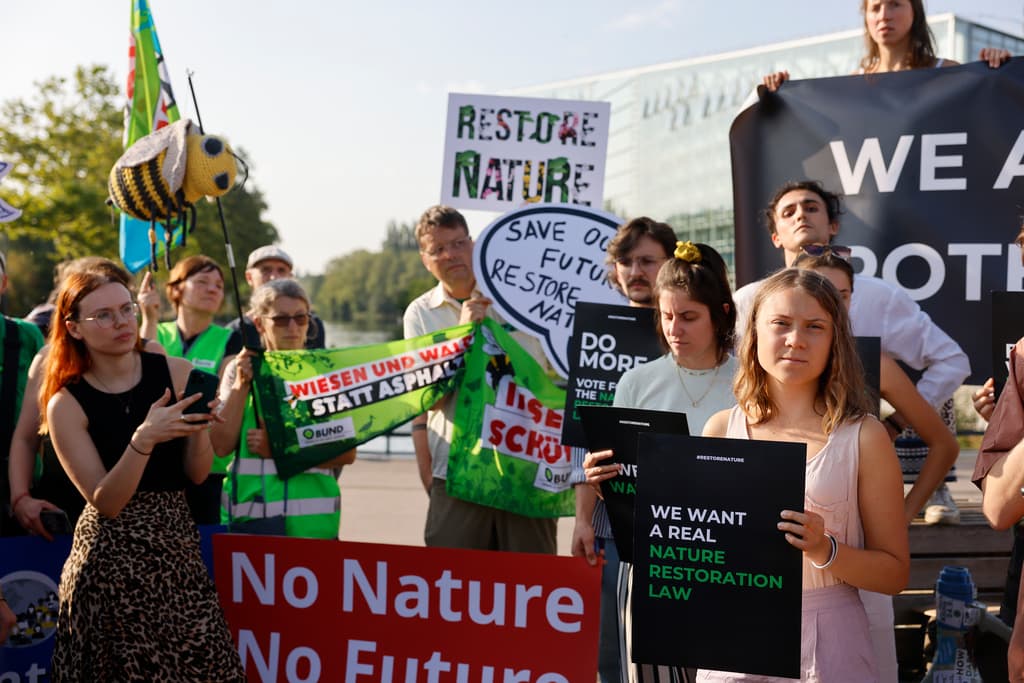The EU's disputed nature restoration law is in harbour since Austria's Environment Minister went against her own government chief.
Sweden voted no, but has to give in to the majority.
There has been a shift in the right direction, but it is insufficient, says Climate and Environment Minister Romina Pourmokhtari (L) over the phone from the decisive ministerial meeting in Luxembourg.
In order for Sweden to be able to support this proposal, it would have required further flexibility and understanding for the differences between different countries' forests and forestry.
The law on, among other things, restoring wetlands and green areas in cities has been a contentious issue within the EU for over a year.
The Swedish government has long been opposed, primarily because the forestry industry could be negatively affected and how the rules would be implemented at the national level.
Sweden has worked for this legislation to be realistic and implementable in the Swedish context, says Pourmokhtari.
No from Sweden
Despite everything, the proposal that has now been adopted is much better than the original proposal, thinks the minister.
But it was not enough.
Sweden was only one of six countries that said no, along with Hungary, Poland, Italy, the Netherlands, and Finland. When 20 instead voted yes, the chairing country Belgium could cast its vote and still get the law through with support from countries representing the necessary two-thirds of the EU's population.
Crucially, Austria's Green Environment Minister Leonore Gewessler chose to go against her own conservative Chancellor, despite triggering a major government crisis at home.
This decision today is also a victory for Austria and for the entire continent, for our livelihood. It is a victory for nature, she says after the vote.
Chancellor Karl Nehammer threatens to take the matter to the EU court, as he does not believe the minister's yes should count. His party, the conservative ÖVP, has also reported Gewessler for dereliction of duty, reports the news agency APA.
Trees and Bees
Fundamentally, Romina Pourmokhtari welcomes the EU's adoption of ambitious goals to strengthen biodiversity. Her criticism is more about how it is done.
The nature restoration law primarily contains requirements for how member states should restore at least 20 per cent of the EU's land and water area by 2030. This includes goals such as planting three billion trees by the same year and opening up a free flow in a total of at least 2,500 miles of rivers and streams.
Bees and other pollinating insects should also benefit, with requirements for measures that reverse the declining trend by 2030 at the latest.
The EU Commission presented its proposal for a nature restoration law in June 2022, aiming to achieve a "continued and sustainable restoration of a resilient nature with biodiversity". The goal is for measures that cover at least 20 per cent of the EU's land and water area by 2030 and all ecosystems that need to be restored by 2050.
Fundamentally, it is about how meadows and wetlands can be recreated, forests mixed up, and green areas created in cities.
The European Parliament confirmed the agreement in a vote at the end of February. The EU Council of Ministers did the same on Monday.






